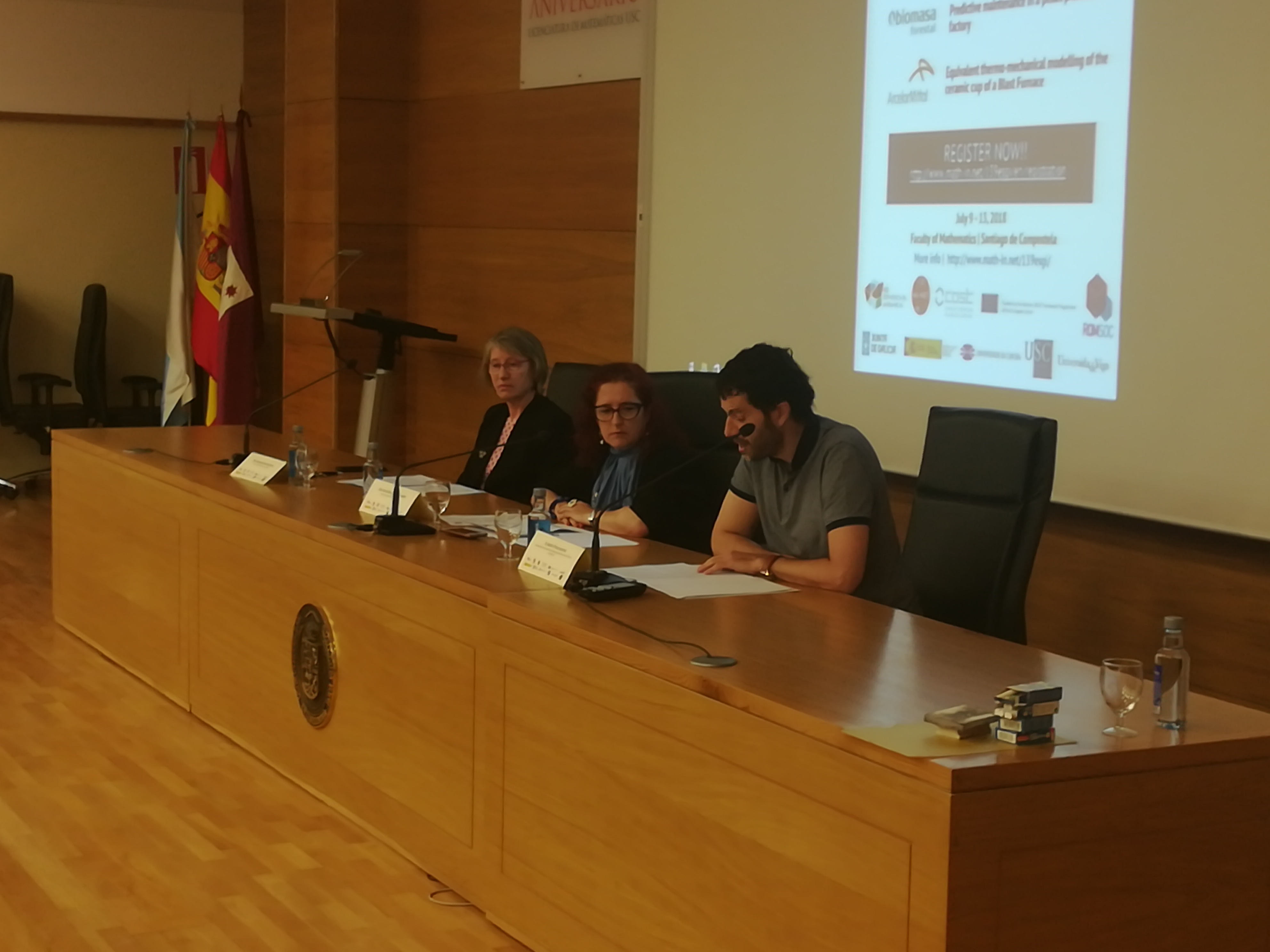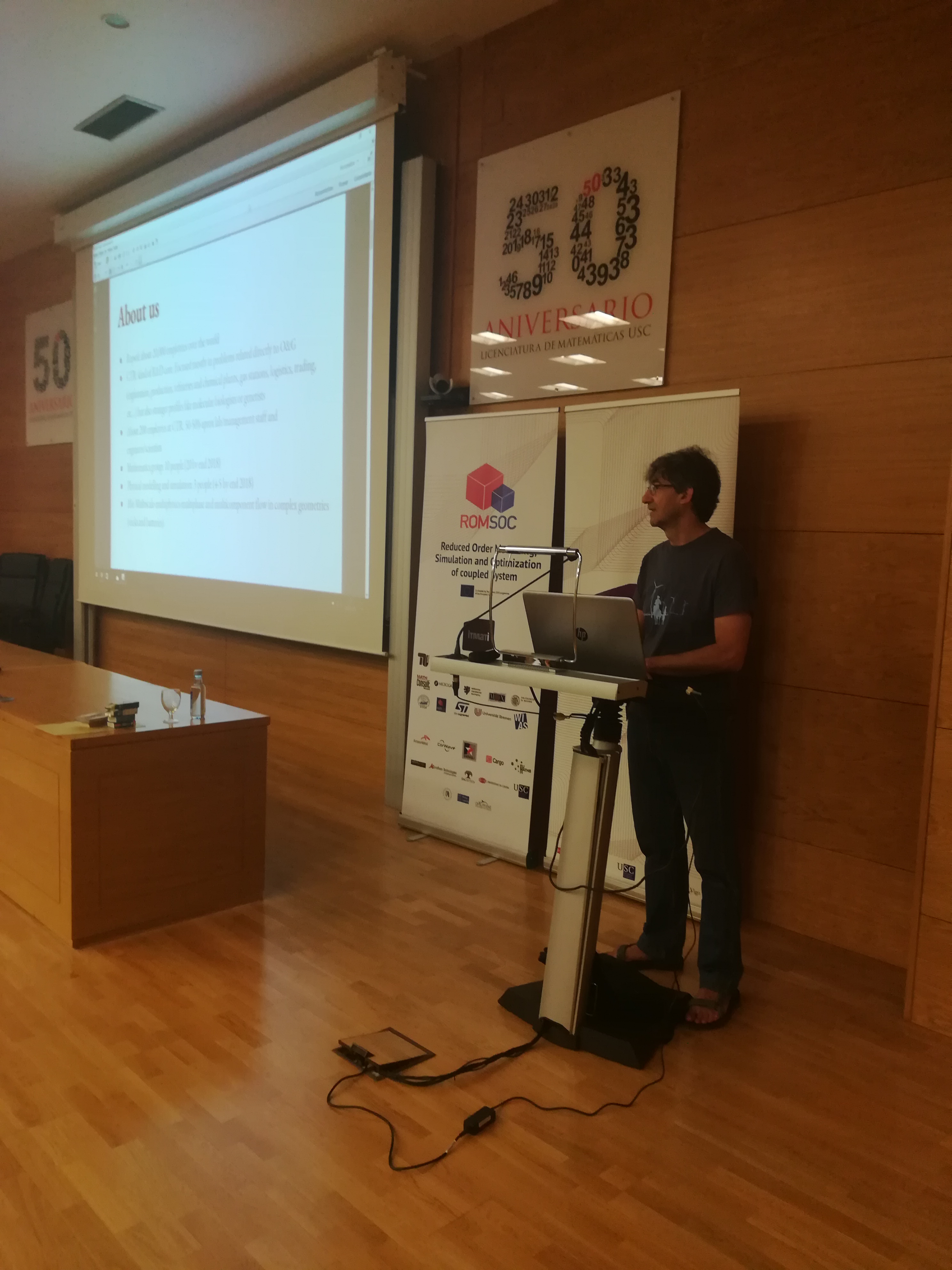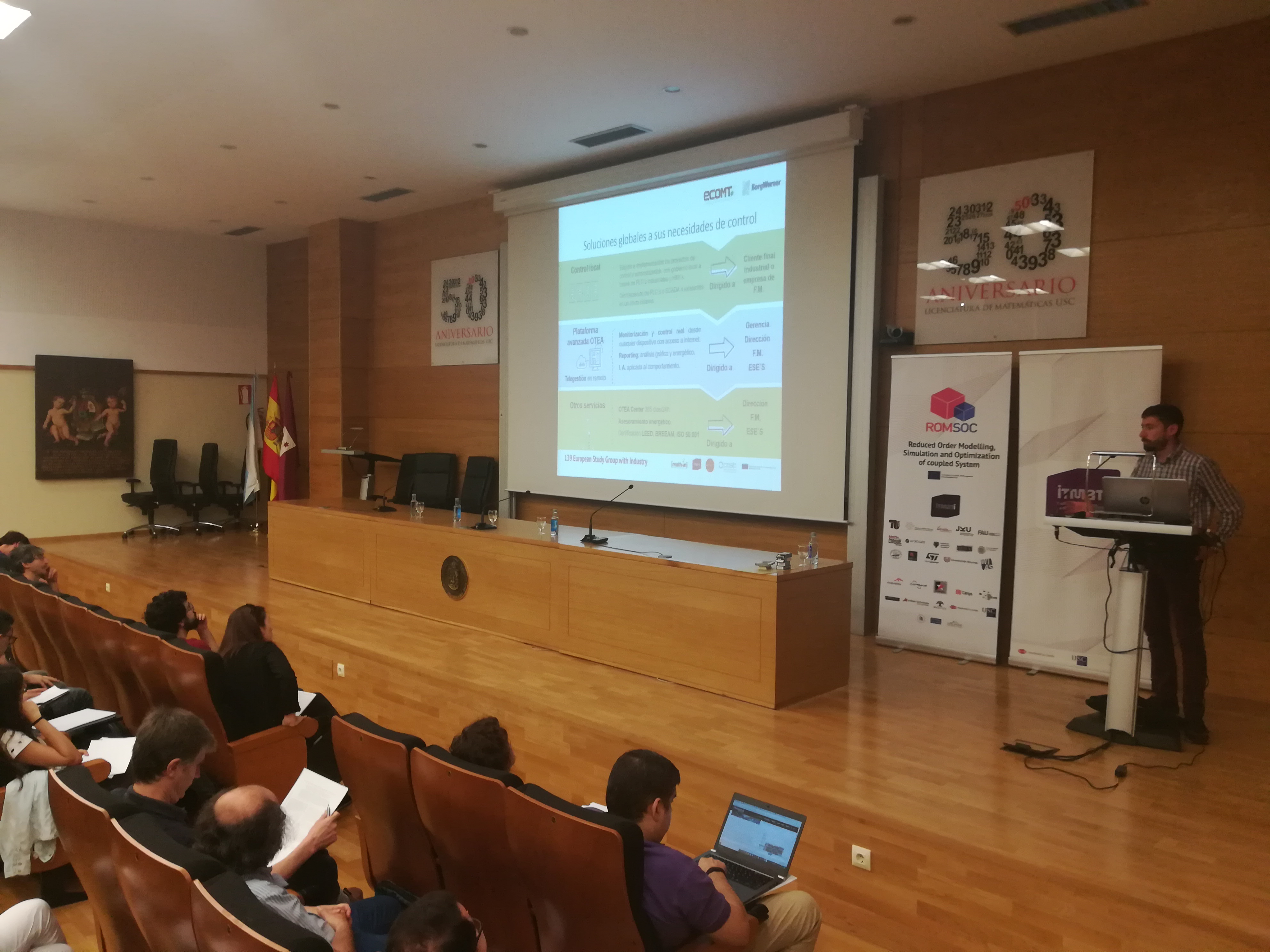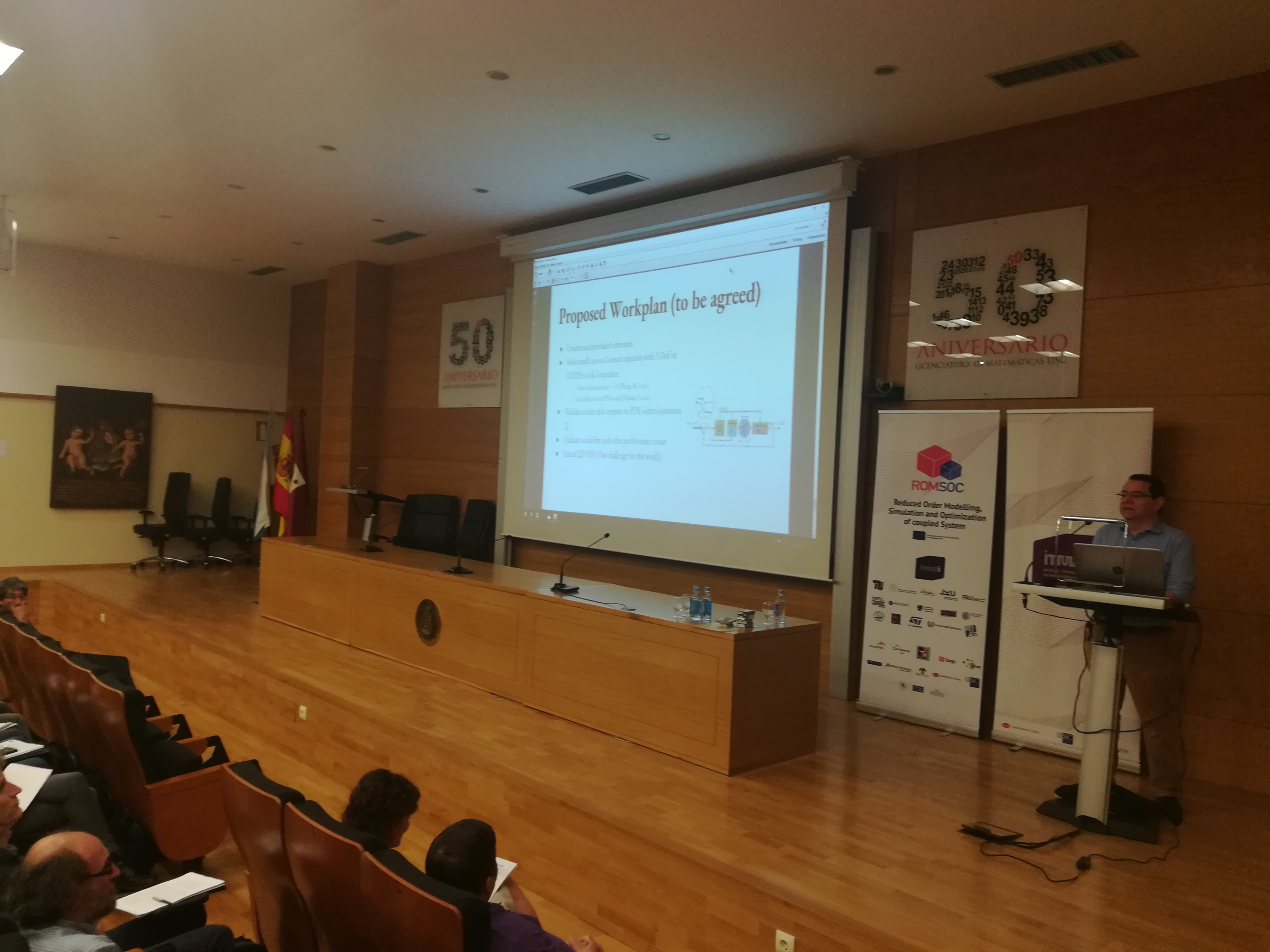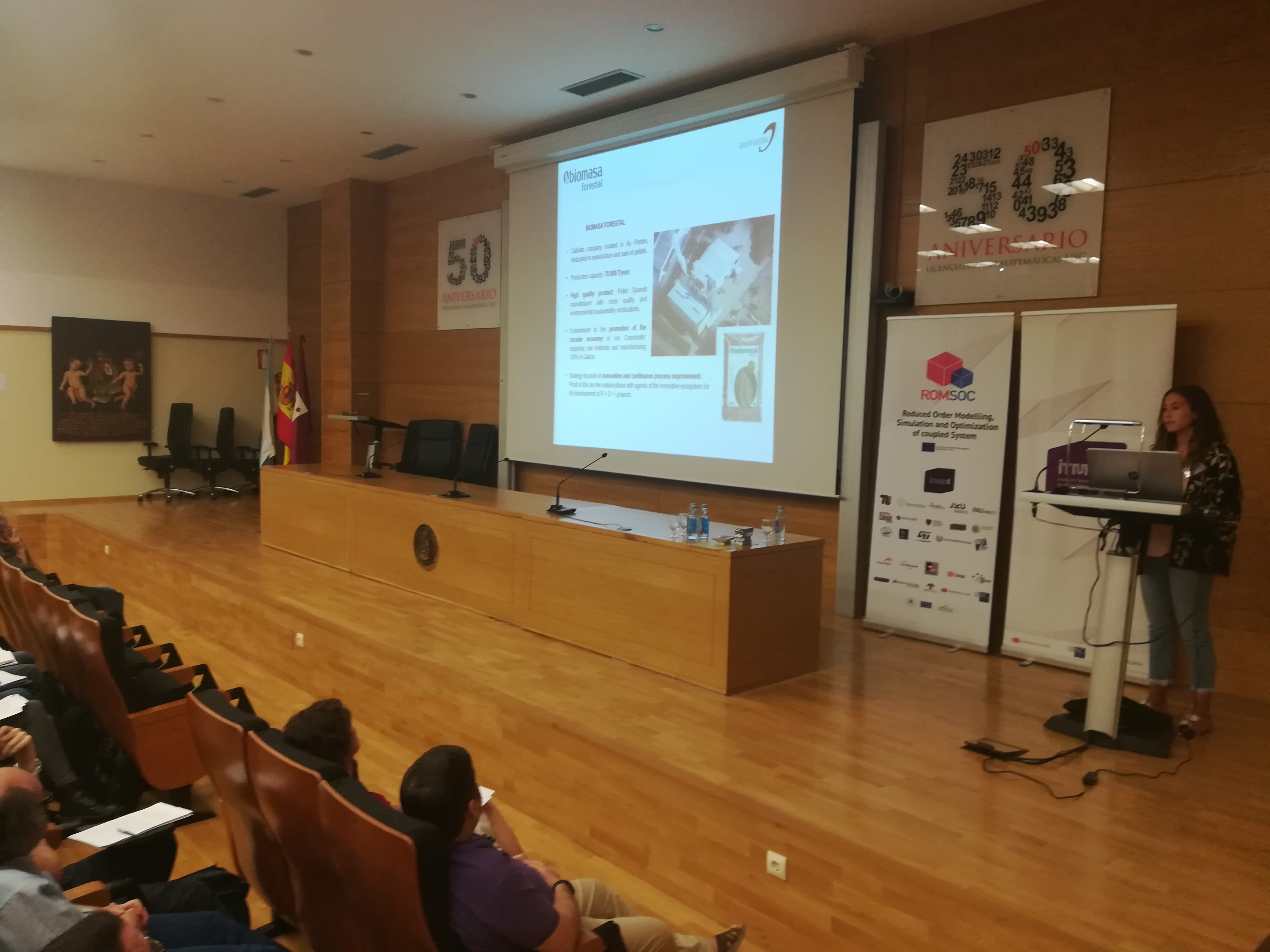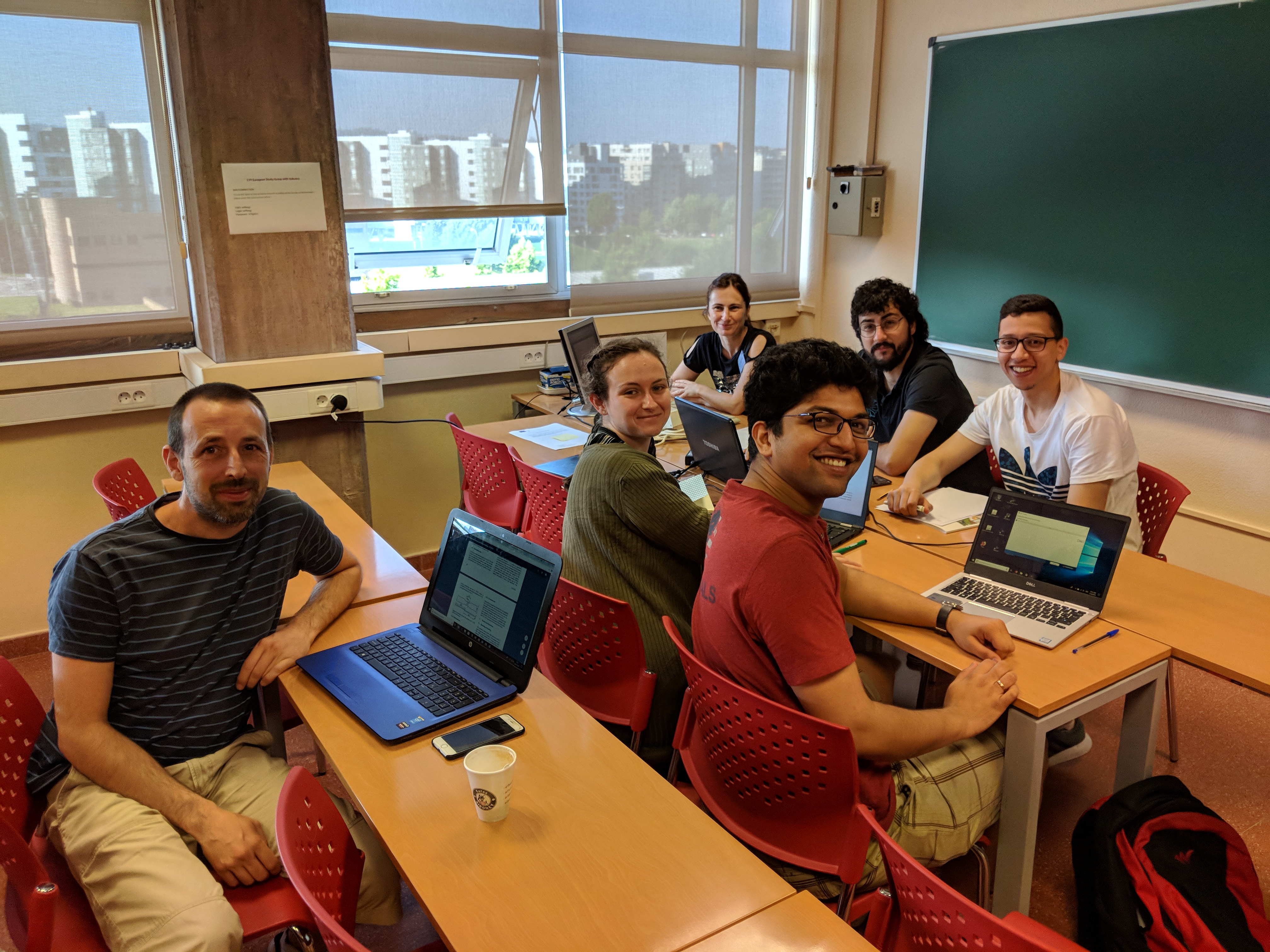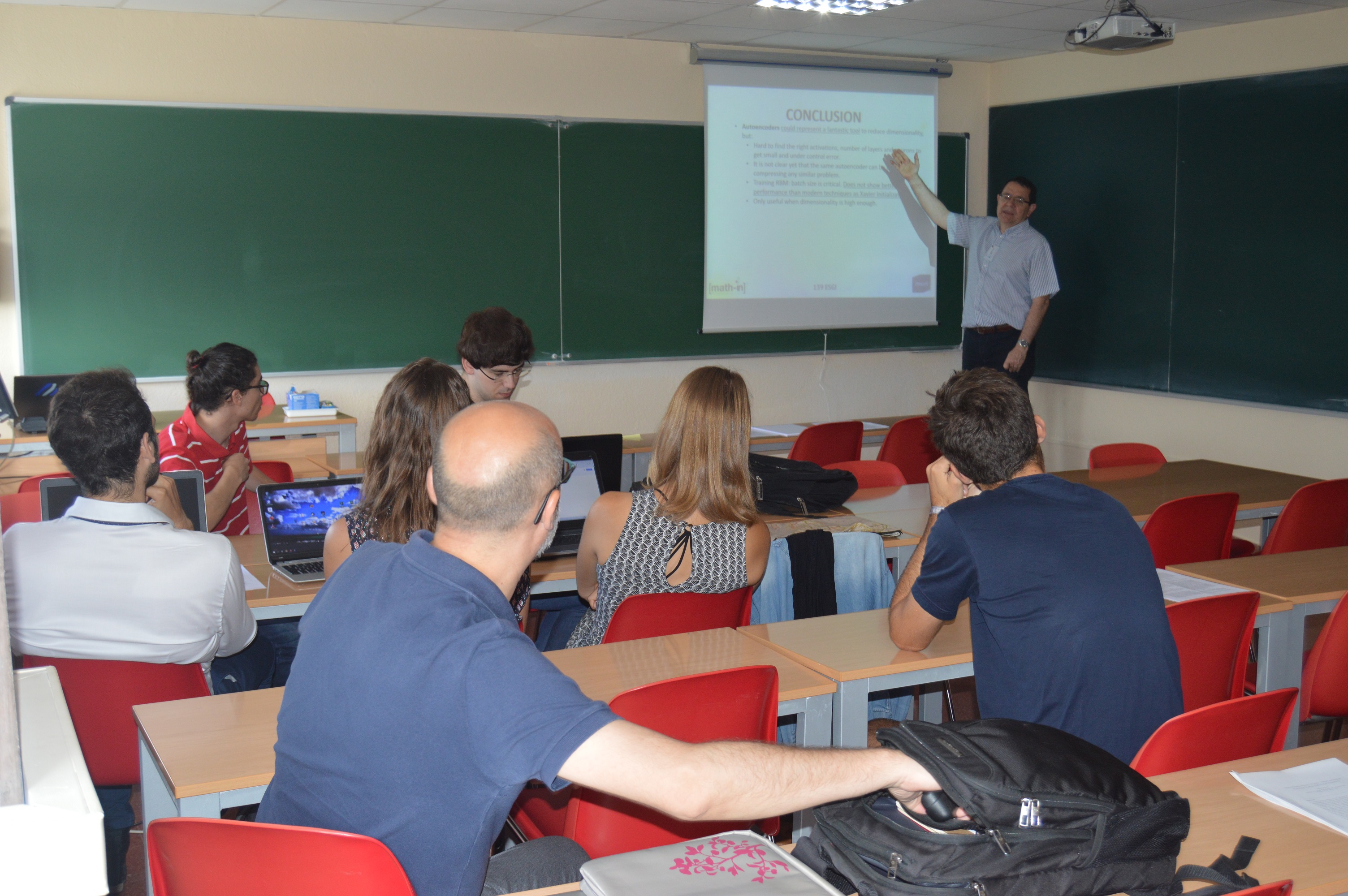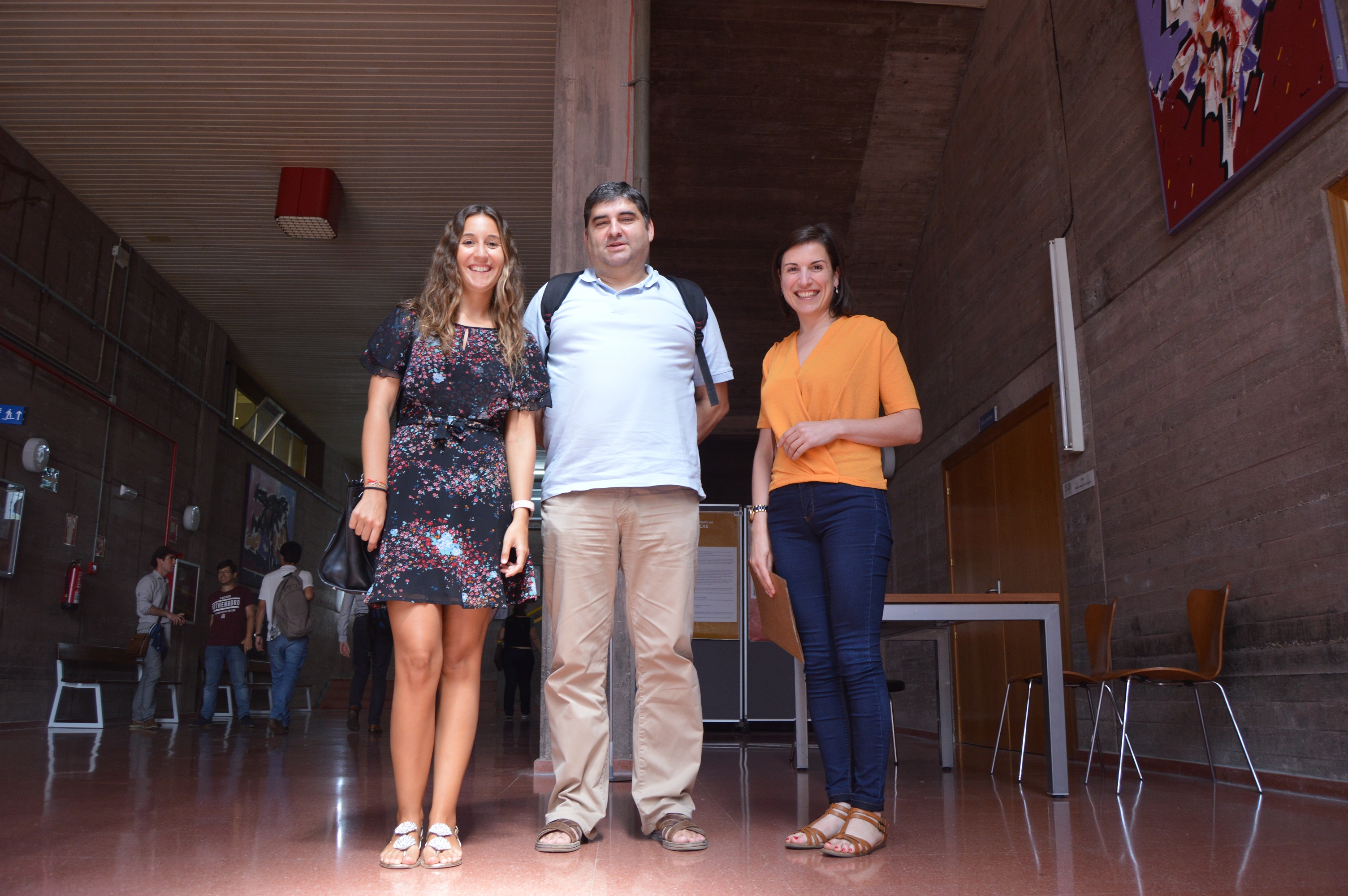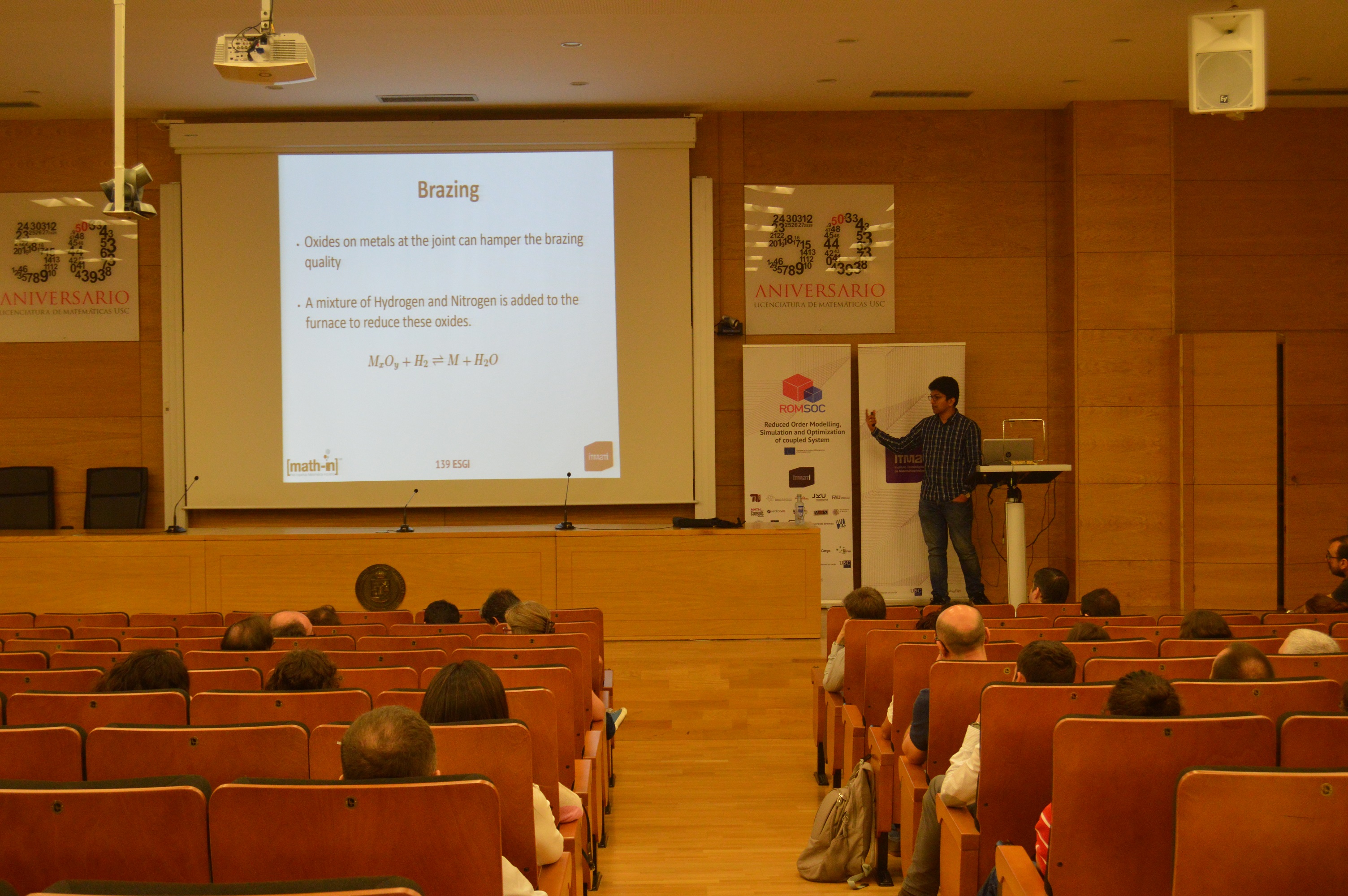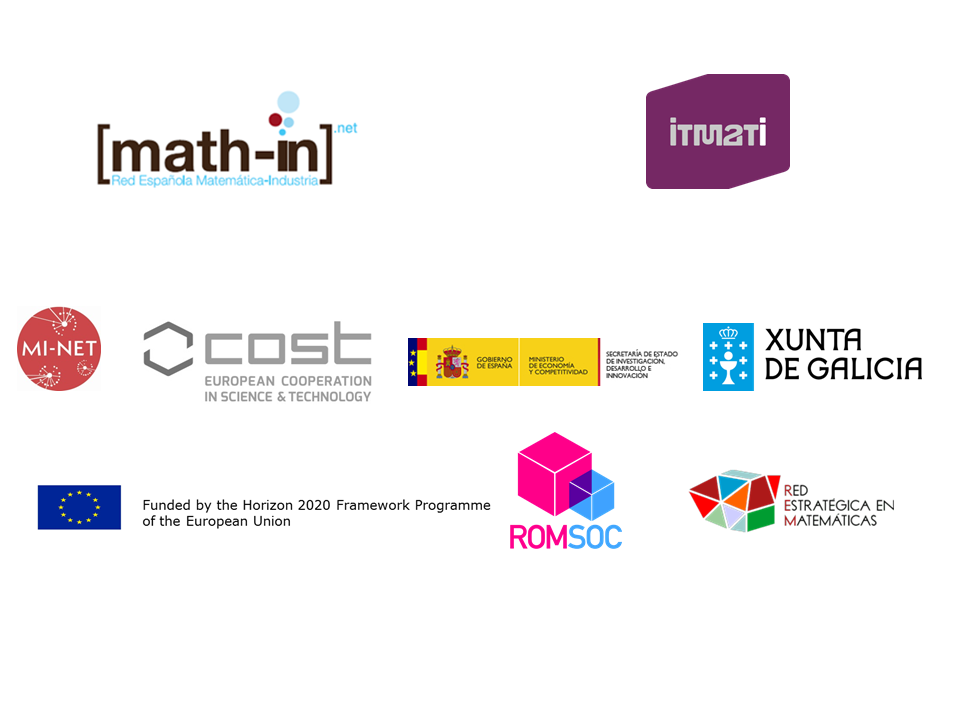139 ESGI: Mathematics as an effective tool to solve problems in metallurgy, automotive sector and industrial processes
139 ESGI concluded with a successful participation and results: the participating researchers managed to find solutions to the five industrial problems. The challenges related to metallurgy, the automotive industry and the improvement of industrial processes were posed by five multinational companies: Repsol, ArcelorMittal, Biomasa Forestal, EcoMT and BorgWarner. In all cases, mathematics was the answer. Technologies such as big data, machine learning and MSO (Modeling, Simulation and Optimization) are behind the solutions, since to reach the automation of the processes first mathematical methodology is needed. Converting a sum of complex calculations in a simplified model without losing accuracy, finding the expression of a physical phenomenon in which numerous variables participate or looking for the relationship between the data collected by sensors are some of the tasks that a mathematician has to address before the machines can get to do their job.
Initiated in Oxford in 1968, the Study Groups with Industry bring together industrial scientists and academic mathematicians to work on problems affecting the industry. These Study Groups represent an internationally recognized method for technology and knowledge transfer between academic institutions and industry.
This edition had 52 participants from 5 different countries (Austria, Spain, Ecuador, Italy and United Kingdom) who managed to find solutions to the five industrial problems: 11 participants from companies, 10 PhD students, 12 grade/master students and 19 researchers and teaching staff.
PARTICIPANT COMPANIES:
-
Solidification and mechanical coupling in microfracture propagation. REPSOL.
- Academic Coordinator | Marco Fontelos. Associate professor at Universidad Autónoma de Madrid and researcher at CSIC.
- Business Coordinator | Ángel Rivero Jiménez, Senior scientist at Repsol Technology Center.
- Specialist | Gerardo Enrique Oleaga Apadula, Associate Professor at Universidad Complutense de Madrid
- Improving the efficiency of a retort furnace. ECOMT with BorgWarner.
- Academic Coordinator | Elena Martín Ortega. Associate profesor at Universidad de Vigo and affilitated researcher of ITMATI.
-
Business Coordinators |
- Anxo Feijóo Lorenzo. General Management and Technical Management at Ecomanagement Technology.
- Jose Carlos Perez Ramilo. Quality Manager at BorgWarner.
- Specialist | Fernando Varas Mérida. Associate profesor at Universidad Politécnica de Madrid.
-
Order reduction in dynamic systems using machine learning. REPSOL.
- Academic Coordinator | Andrés Gómez Tato, Applications & Projects Department Manager at CESGA.
- Business Coordinator | Ángel Rivero Jiménez, Senior scientist at Repsol Technology Center.
- Specialist | Pablo Solano López, PhD student, Applied Physics Department (UPM)
-
Predictive maintenance in a pellet production factory. Biomasa Forestal.
- Academic Coordinator | Manuel Febrero Bande, Full Professor of Statistics and Operational Research (USC)
- Business Coordinator | Laura Vázquez Pardo, I+D Manager at Grupo Gestán
- Academic Coordinators | Peregrina Quintela Estévez, Full Professor of Applied Mathematics in Universidad de Santiago de Compostela and Director of ITMATI y Patricia Barral Rodiño, Associate Professor in Universidad de Santiago de Compostela and Affiliated researcher to ITMATI.
- Business Coordinator | Miguel Fanjul Cuesta, R&D Engineer in the Refractory Department at ArcelorMittal.
- Specialist | María Teresa Sánchez Rúa, Centro Universitario de la Defensa (Zaragoza)
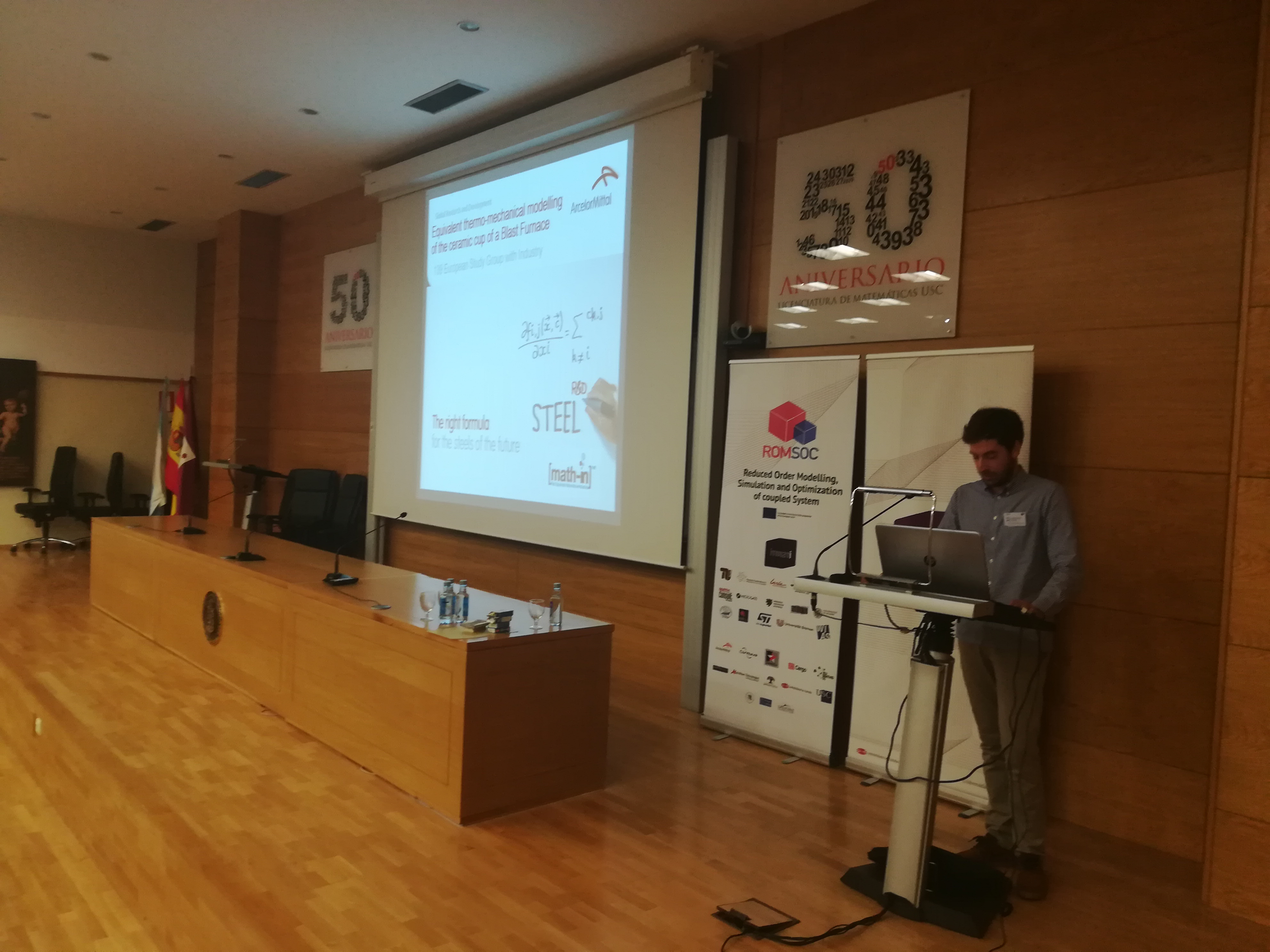
5th Problem presentation: Equivalent thermo-mechanical modelling
of the ceramic cup of a Blast Furnace.
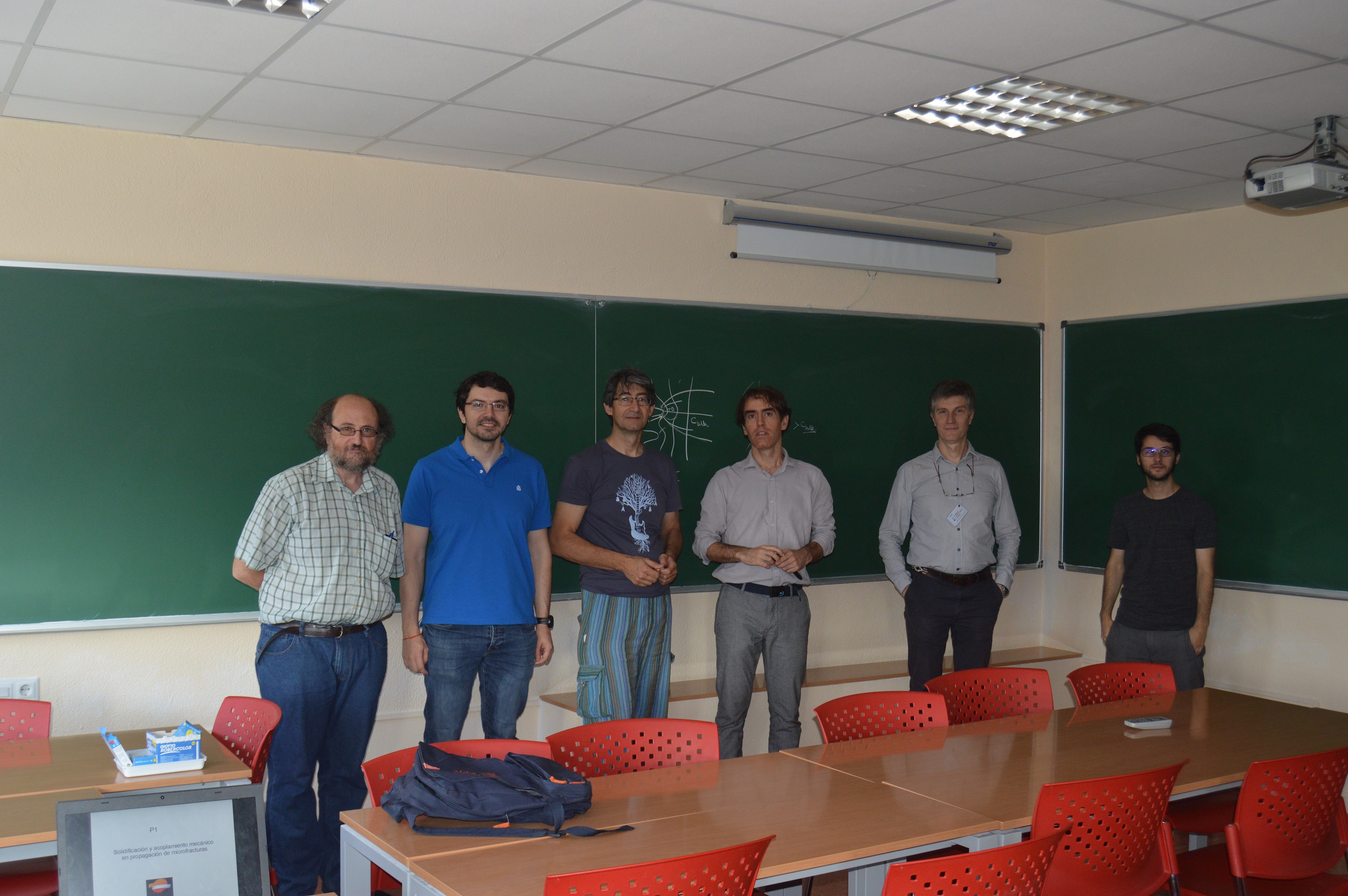
Part of the workgroup: Problem 1: Solidification and mechanical coupling in microfracture propagation
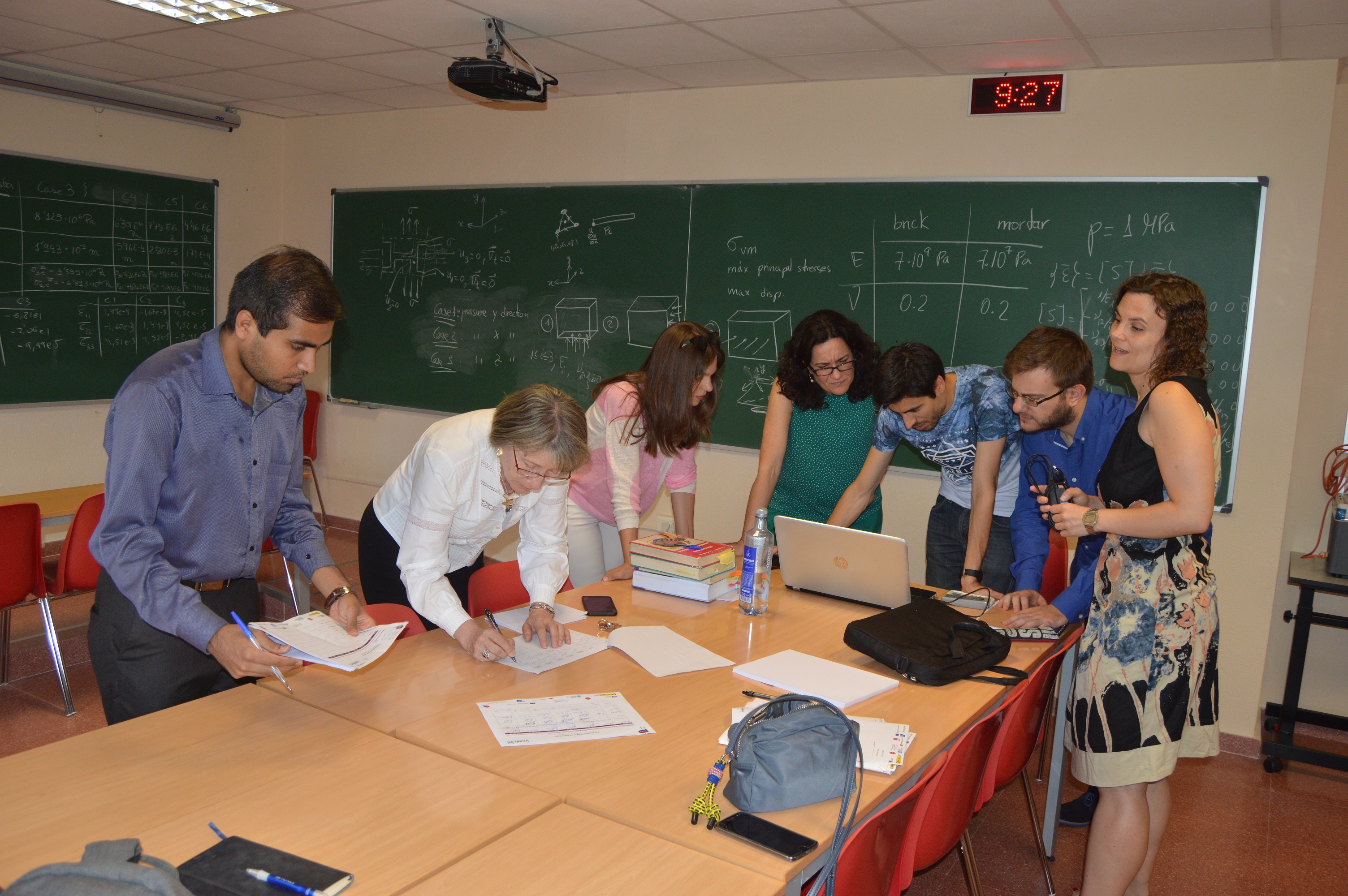
Part of the workgroup: Problem 5: Equivalent thermo-mechanical modelling
of the ceramic cup of a Blast Furnace.
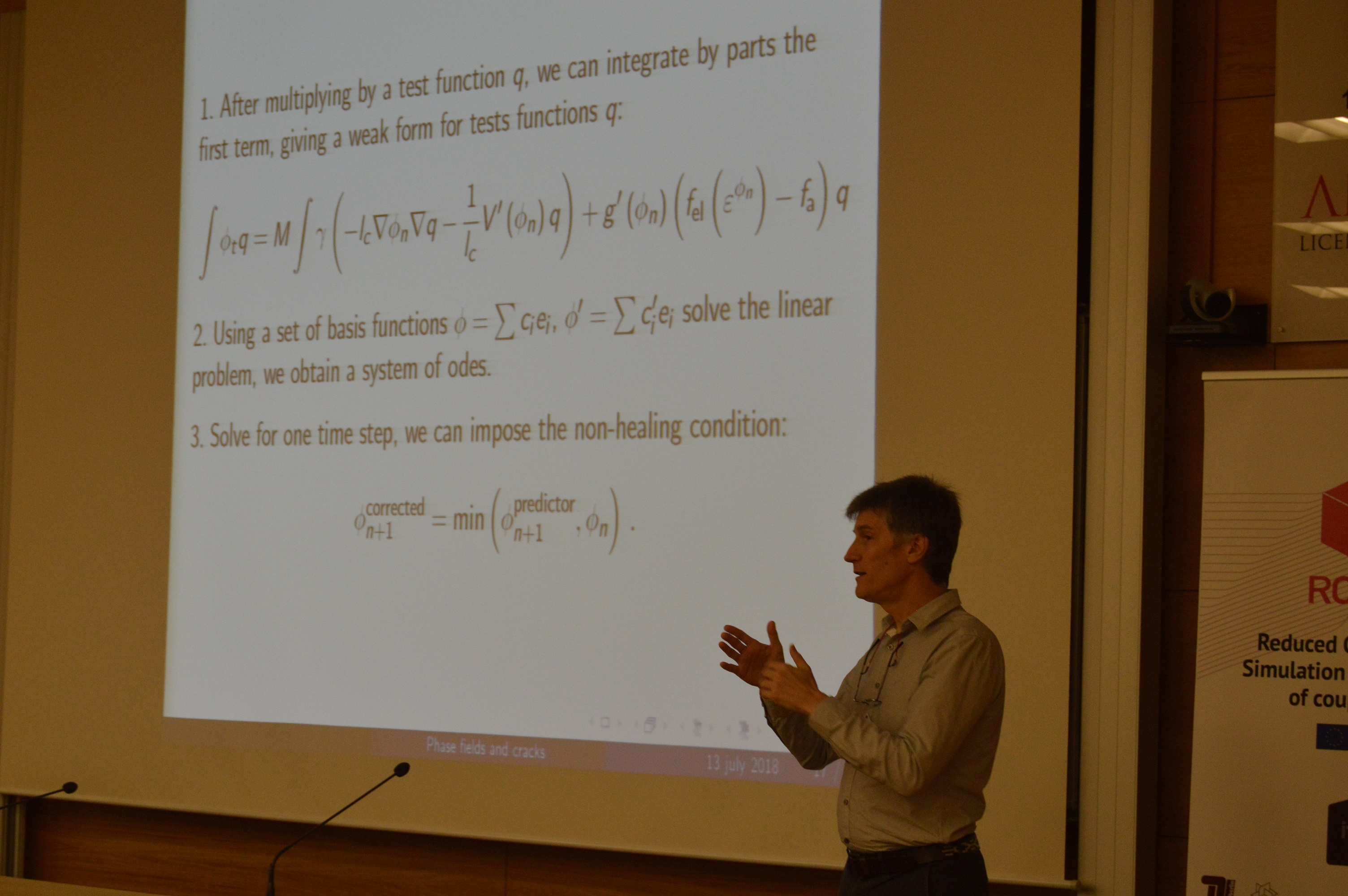
Presentation of the conclusions of the first problem: Solidification and mechanical coupling in microfracture propagation
Presentation of the conclusions of the second problem: Improving the efficiency of a retort furnace
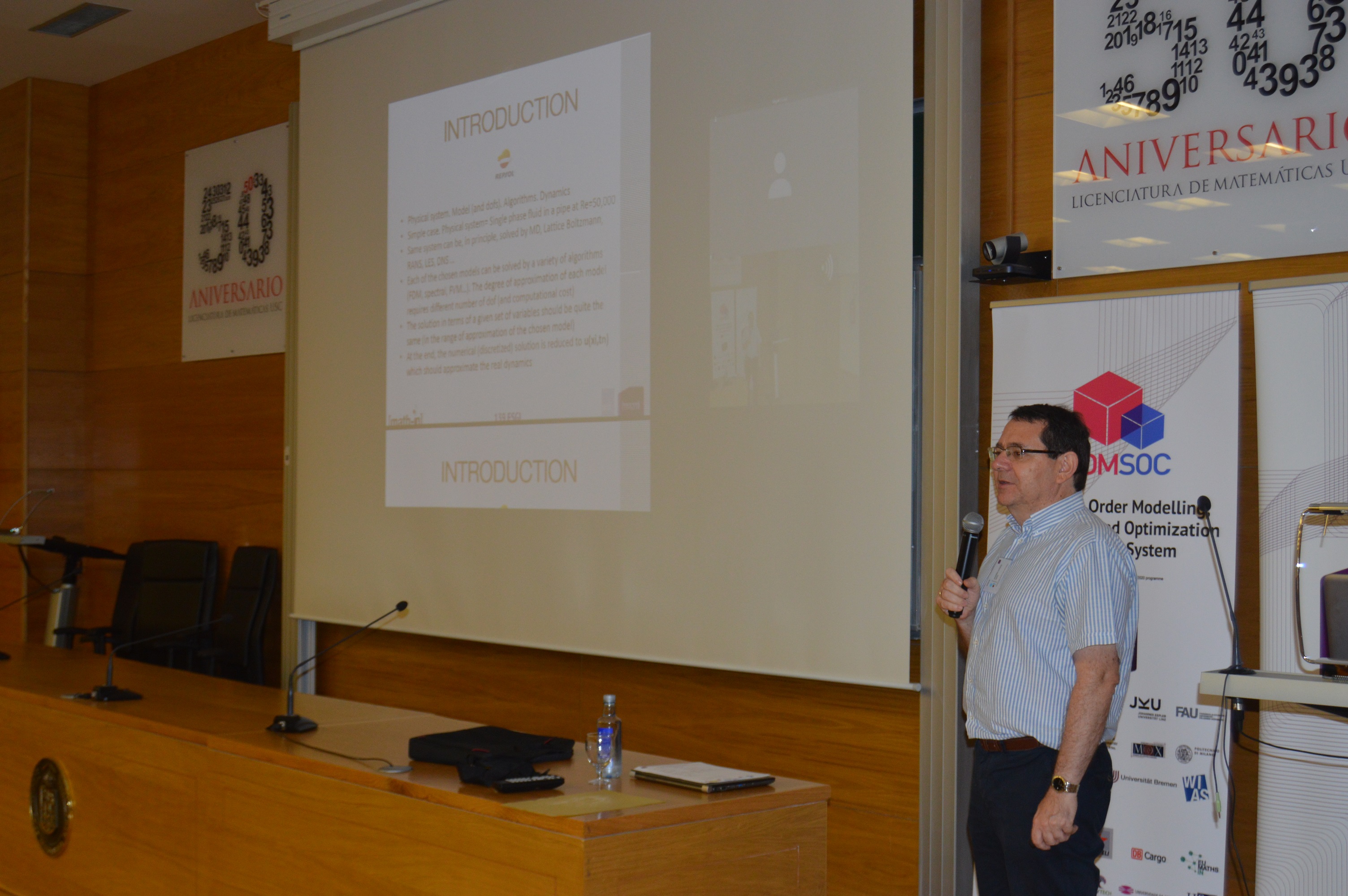
Presentation of the conclusions of the third problem: Order reduction in dynamic systems using machine learning
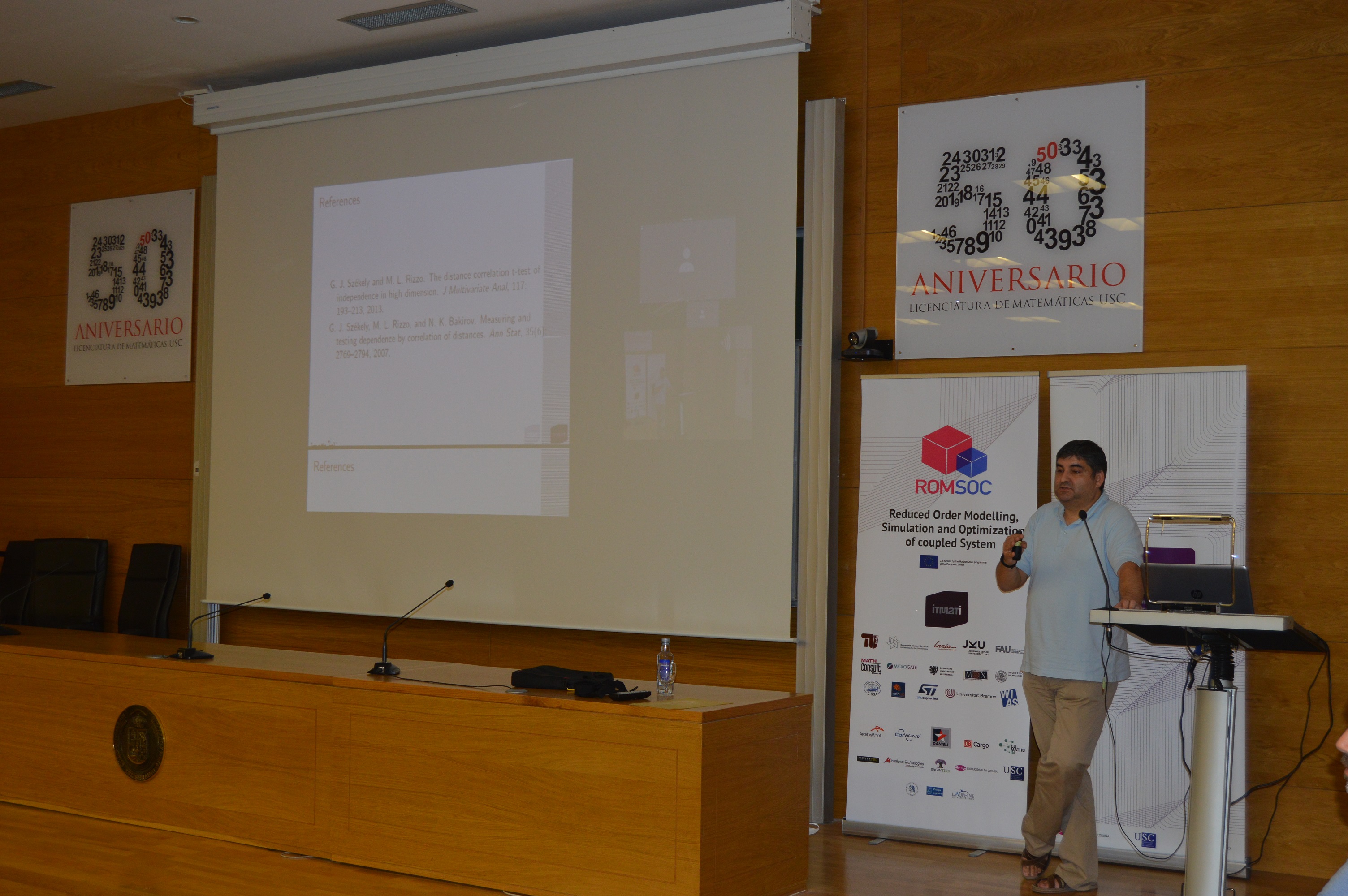
Presentation of the conclusions of the fourth problem: Predictive maintenance in a pellet production factory
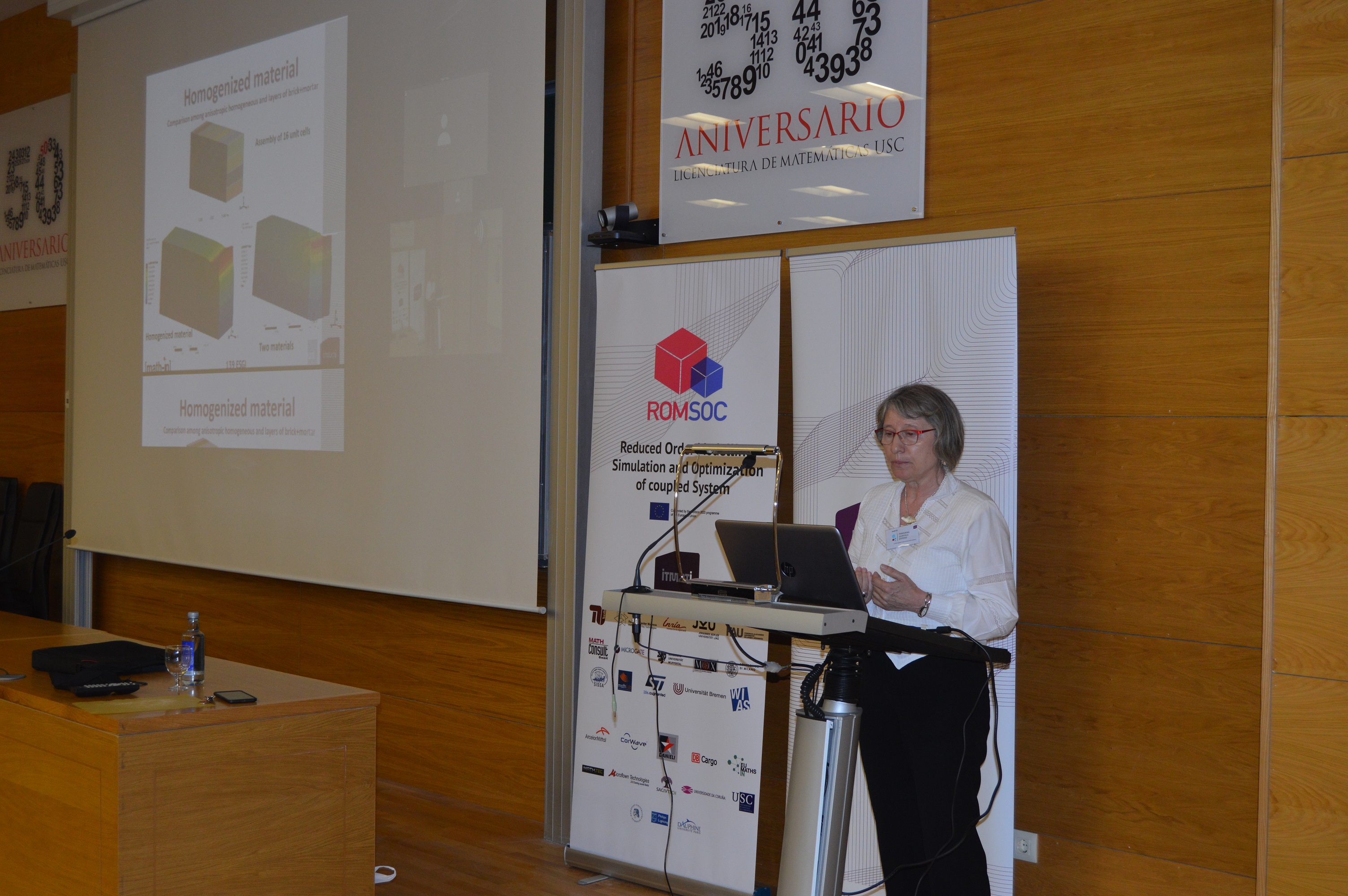
Presentation of the conclusions of the fifth problem: Equivalent thermo-mechanical modelling
of the ceramic cup of a Blast Furnace.
Further information: 139 ESGI
Organize: Spanish Network for Mathematics & Industry (math-in) and the Technological Institute for Industrial Mathematics (ITMATI). Co-organizes COST Action TD1409, Mathematics for Industry Network (MI-NET).
COST Action TD1409, Mathematics for Industry Network (MI-NET) co-organizes and co-funds this event. The ESGI is also co-funded by the followings:
- Ministry of Economy, Industry and Competitiveness through the Thematic Network RTMath-in, granted within the call “Networks of Excellence” 2016
- Regional Ministry of Culture, Education and University Planning, Regional Government of Galicia through the Technological Network for Industrial Mathematics (TMATI) and under the agreement that ITMATI has with the Regional Ministry
- ROMSOC project financed by the EU within the Horizon 2020 Research and Innovation Programme under the Marie-Skłodowska-Curie grant agreement No 765374.
In this occasion CIEDUS from USC recognized this activity as a training course in the Doctorate Programs: "Mathematical Methods and Numerical Simulation in Engineering and Applied Sciences (USC-UVigo-UDC)" and "Statistics and Operational Research (USC-UVigo - UDC) ", with two modalities: Basic 139 ESGI (1.5 ECTS) and Advanced 139 ESGI (4 ECTS) depending on the involvement of the PhD student in the preparation of the conclusions and the minutes of the event.
The appropriate procedures were also carried out so that this event could be considered as a training course for all the participating researchers of the three Galician universities. Furthermore, this activity is also recognized by the UDC, USC and UVigo as a training activity for the teaching staff.
PRESS RELEASES:
- Cinco días para cinco retos: las matemáticas resuelven problemas empresariales
- Las matemáticas se demuestran eficaces en metalurgia, automoción y procesos industriales
MEDIA MENTIONS:
- El Correo Gallego (02/08/2018)
- SINC (17/07/2018)
- Codigo Cero (17/07/2018)
- La Voz de Galicia (14/07/18)
- Cinco Días (10/07/18)
- La Voz de Galicia (10/07/18)
- Codigo Cero (06/07/18)
- MATH-IN (06/07/18)
- RSME
- SGAPEIO
- USC
- ECMI (22/05/18)
- SCCB
- MATH-IN (28/06/18)
- MI-NET (26/06/18)
- MI-NET- Twitter (27/02/18)
- SGAPEIO
- MATH-IN
- ECMI
All the information related to this event is available on the 139 ESGI website: http://www.math-in.net/





